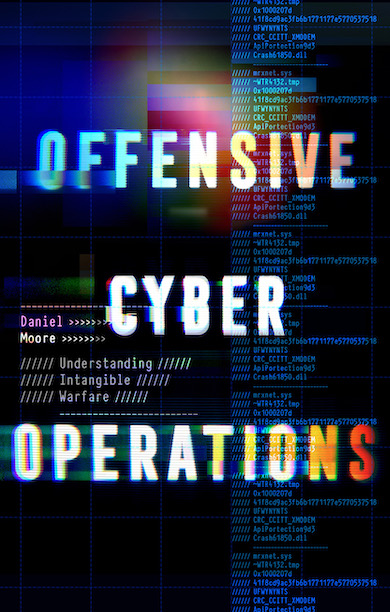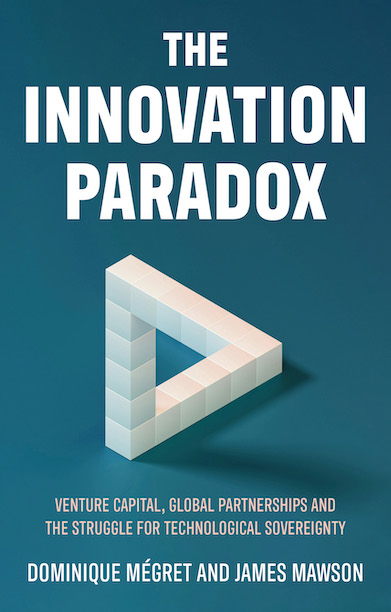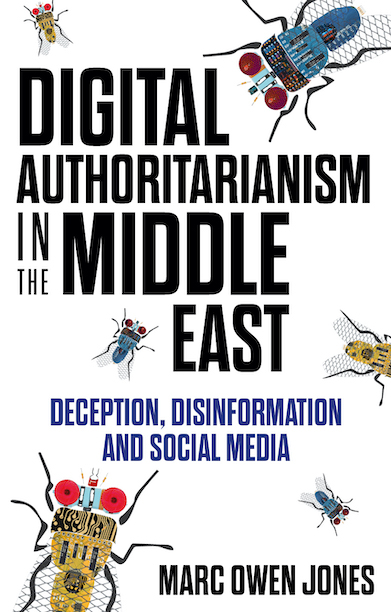Offensive Cyber Operations
Understanding Intangible Warfare
Assesses how militaries go about attacking cyber networks, for what purposes, and under what circumstances.
Description
Cyber-warfare is often discussed, but rarely truly seen. When does an intrusion turn into an attack, and what does that entail? How do nations fold offensive cyber operations into their strategies? Operations against networks mostly occur to collect intelligence, in peacetime. Understanding the lifecycle and complexity of targeting adversary networks is key to doing so effectively in conflict.
Rather than discussing the spectre of cyber war, Daniel Moore seeks to observe the spectrum of cyber operations. By piecing together operational case studies, military strategy and technical analysis, he shows that modern cyber operations are neither altogether unique, nor entirely novel. Offensive cyber operations are the latest incarnation of intangible warfare–conflict waged through non-physical means, such as the information space or the electromagnetic spectrum.
Not all offensive operations are created equal. Some are slow-paced, clandestine infiltrations requiring discipline and patience for a big payoff; others are short-lived attacks meant to create temporary tactical disruptions. This book first seeks to understand the possibilities, before turning to look at some of the most prolific actors: the United States, Russia, China and Iran. Each have their own unique take, advantages and challenges when attacking networks for effect.
Reviews
‘An extremely valuable resource that cuts through the noise to explain in detail and with precision what cyber warfare truly entails.’ — International Affairs
‘A detailed analysis of some of [the] globe’s biggest actors in the field of “offensive cyber operations”.’ — Cyber Warfare Review
‘One of the most insightful and thought-provoking books on the conduct and practice of cyber war.’ — Joshua C. Huminski, National Security Institute
‘A fascinating read, full of detail that is communicated effectively for non-cyber professionals as well as those involved in cyber operations.’ — Writerly Witterings blog
‘This deeply researched book, written by one of the most authoritative, experienced and creative voices in the wider infosec community, is an inspiration and a revelation. Its core conceptual contribution is the long-overdue distinction between presence-based and event-based offensive operations. Moore’s analysis and findings will shape the debate on cyberwar for years to come.’ — Thomas Rid, Professor of Strategic Studies, Johns Hopkins University, and author of Cyber War Will Not Take Place
‘No national cyber programme is the same–Moore’s work illustrates the complexities of offensive cyber operations through the lenses of the most capable nations who employ them, their strategic goals and their methods for doing so. A very useful framework!’ — Lauren Zabierek, Executive Director of the Cyber Project, Belfer Center, Harvard Kennedy School
‘Through embedding the subject in a historical lineage of signals intelligence and electronic warfare, Moore distils the true novelties as well as the continuities of the use of offensive cyber capabilities in warfare. Moore not only analyses the use of offensive cyber operations by military powers today, but also offers us a glimpse of what is to come.’ — Florian J. Egloff, author of Semi-State Actors in Cybersecurity
‘Moore possesses an acute historical sensitivity and a scholar-practitioner’s keen eye. This book cuts through the noise to explain military cyber operations with clarity and insight. An essential read for everyone interested in the complex battlespaces of twenty-first-century warfare.’ — Tim Stevens, Senior Lecturer in Global Security, Department of War Studies, and head of the King’s Cyber Security Research Group, King’s College London
Author(s)
Daniel Moore has nearly twenty years’ experience in the intersection of technology, intelligence and cyber. He holds a PhD from King’s College London and has held roles in the public and private sectors, including with the Israeli military, IBM, Accenture and Meta. Daniel has published extensively on security issues.






